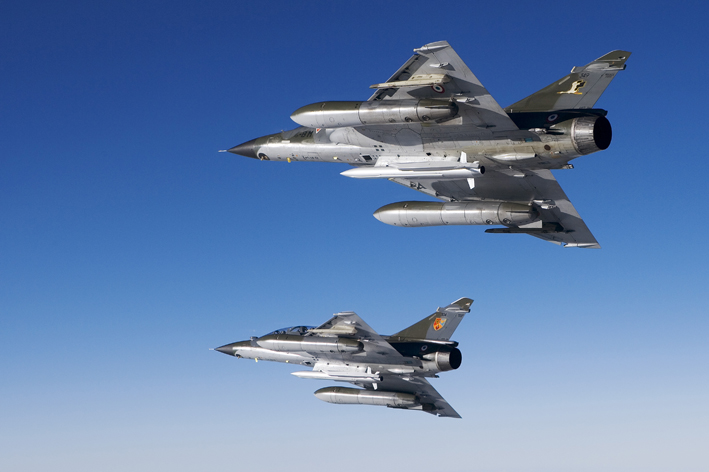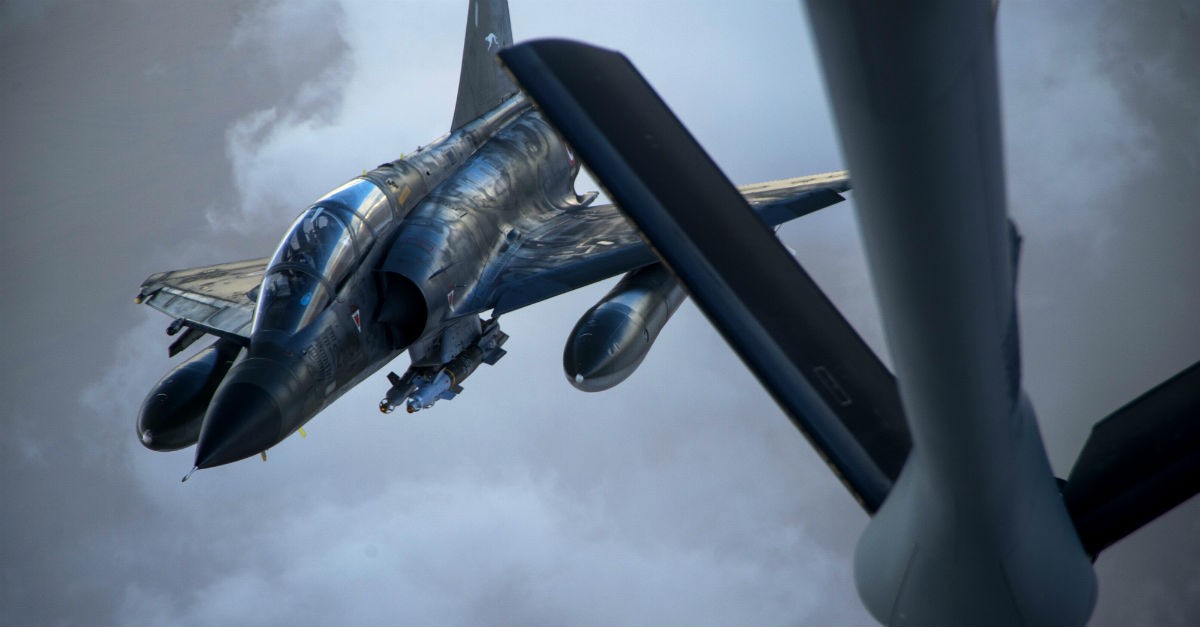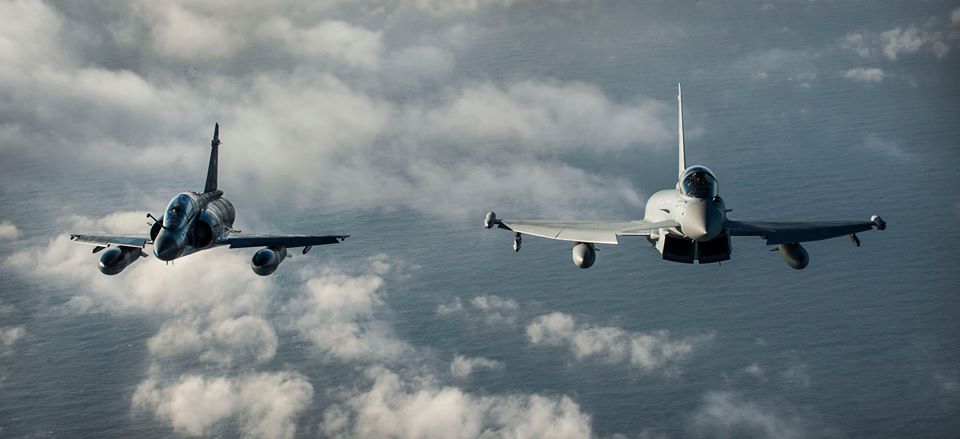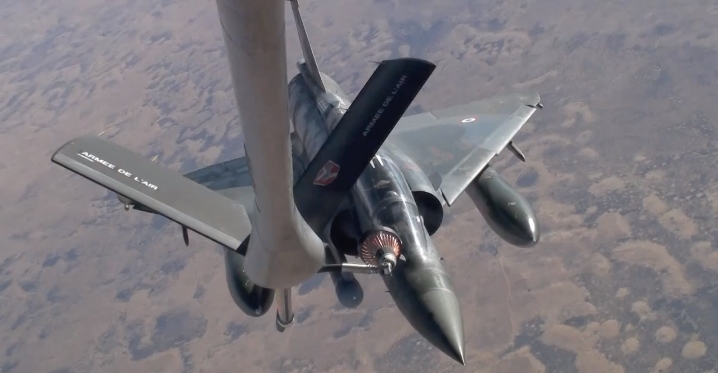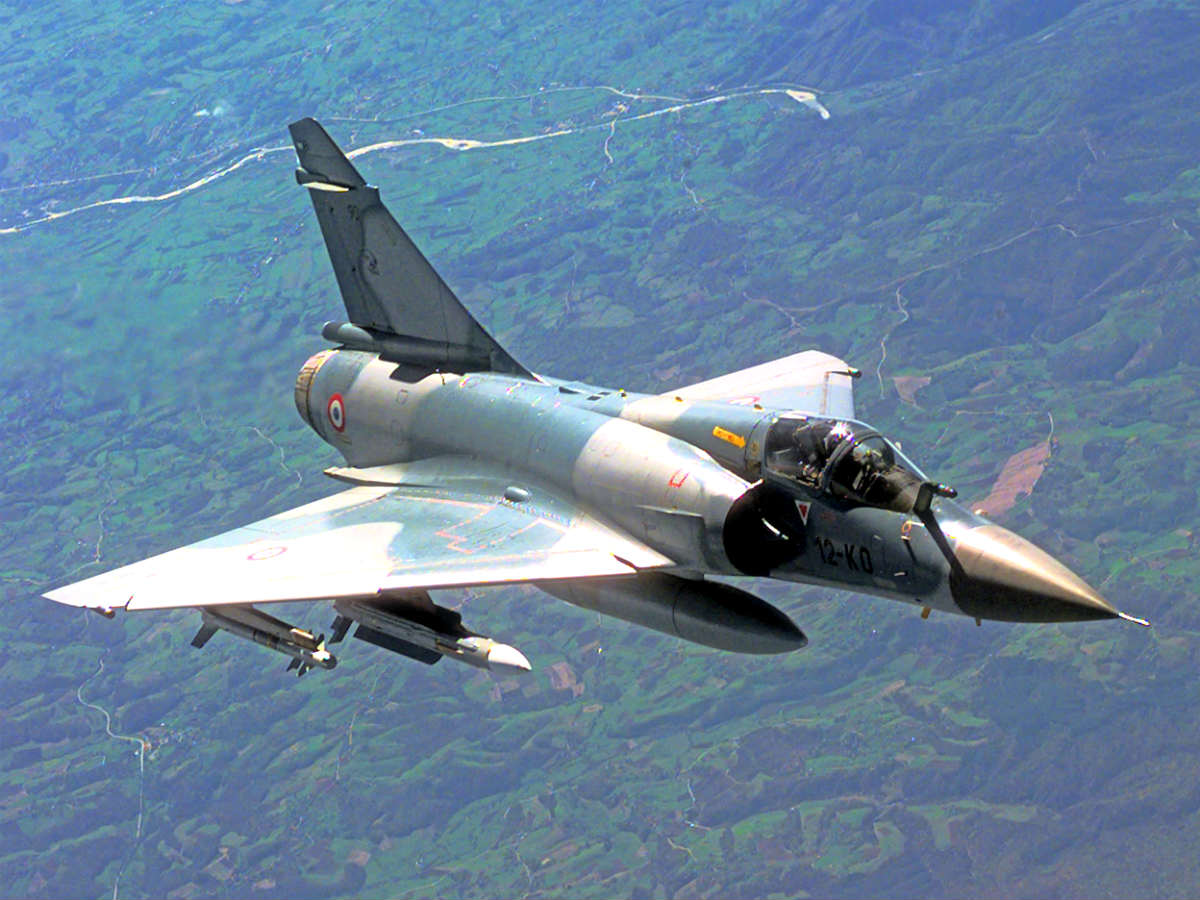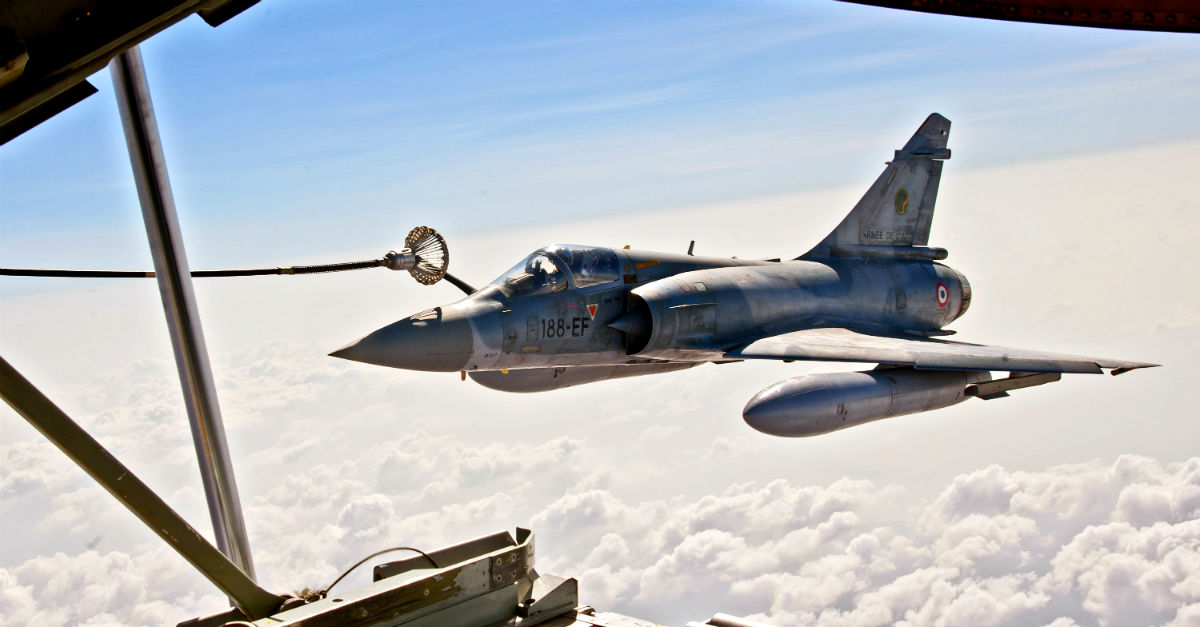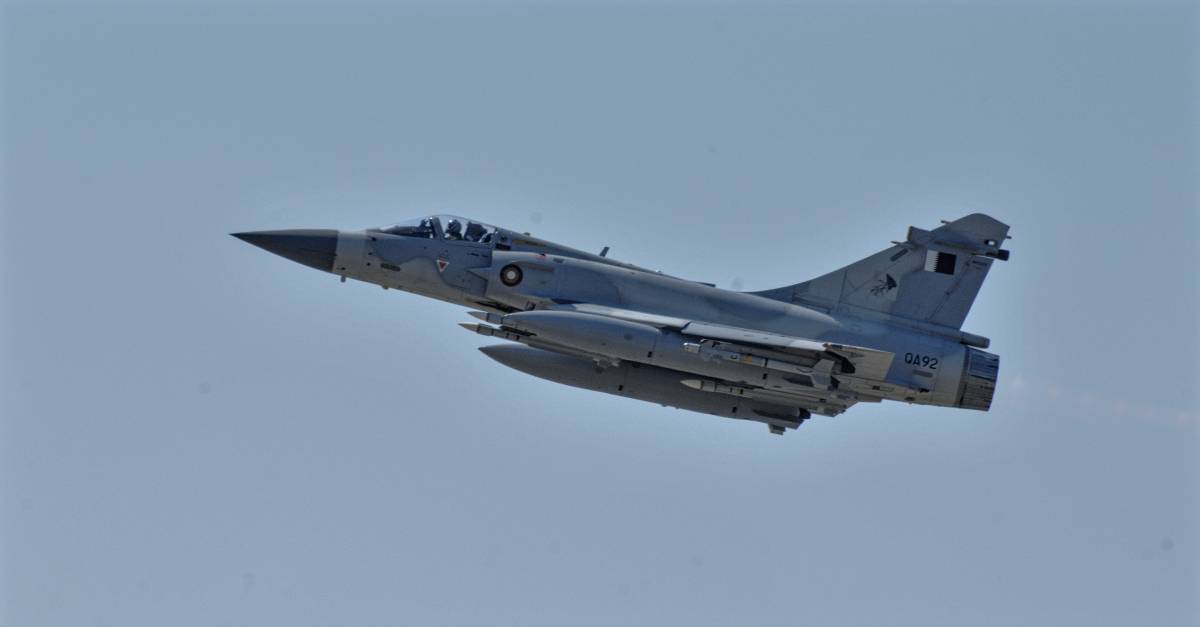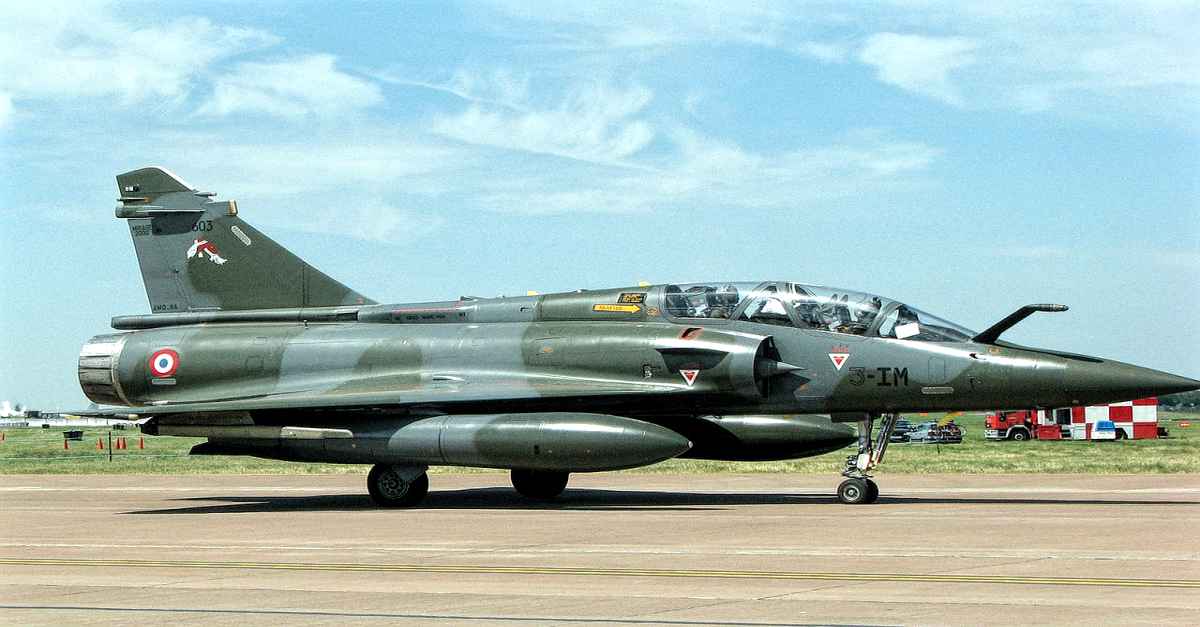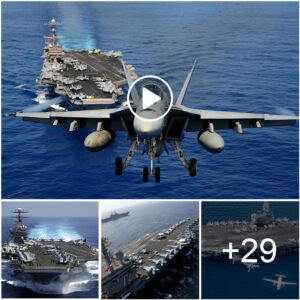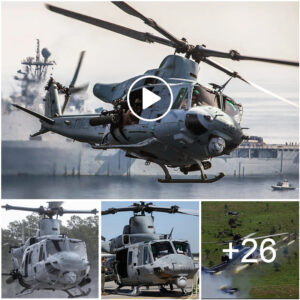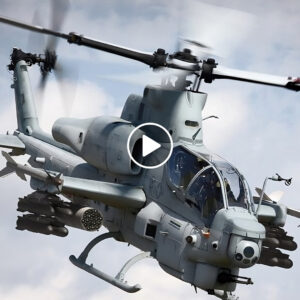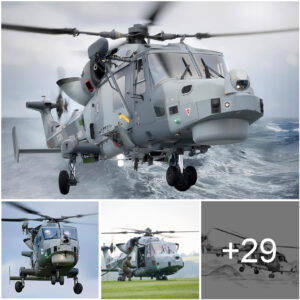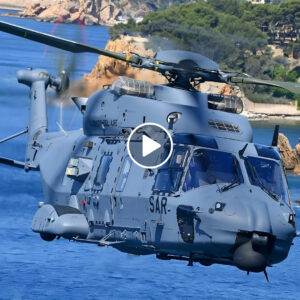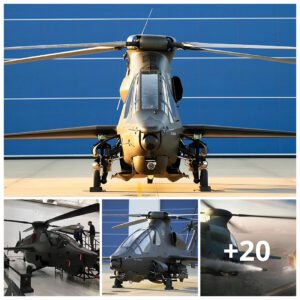The Dassault Mirage 2000 D/N is much more than the French answer to the American F-16 Fighting Falcon. Prized for its low-cost and ease of maintenance, this delta-wing tactical bomber is the most heavily exported European combat aircraft around the world. Faster than the F-16, with a steeper rate of climb and much longer range, the Mirage was designed from the ground up for its bomber role. The Dassault Mirage’s tough and rugged frame helps it excel at extremely low-altitude close air support and high-speed deep penetration strikes into contested airspace.
Conventional And Nuclear Strike:
The “D” designator marks the conventional attack version in service with ten different nations, but the “N” variant is a special case used only by the French Air Force. The Mirage 2000 N is France’s only aircraft optimized for nuclear strikes. In this role, its sole armament is the ASMP standoff nuclear weapon.
Once fired, this 5.4 meter long, ramjet-powered missile lances out at Mach 3 for up to 100 kilometers before opening France’s final line of defense: a 300 kiloton “city buster” thermonuclear warhead.
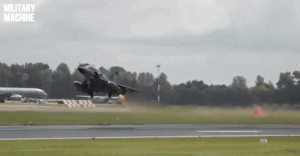 Combat Success:
Combat Success:
All in all, the Mirage 2000 D has one of the most extensive combat resumes of any European aircraft. These Mirages were among the first strike aircraft sent into action during NATO’s intervention in Bosnia, both invasions of Iraq, Operation Enduring Unity in Afghanistan, and more recently in Libya and Mali. Of all their missions, none are more famous than the final NATO bombing run of the Libyan Civil War.
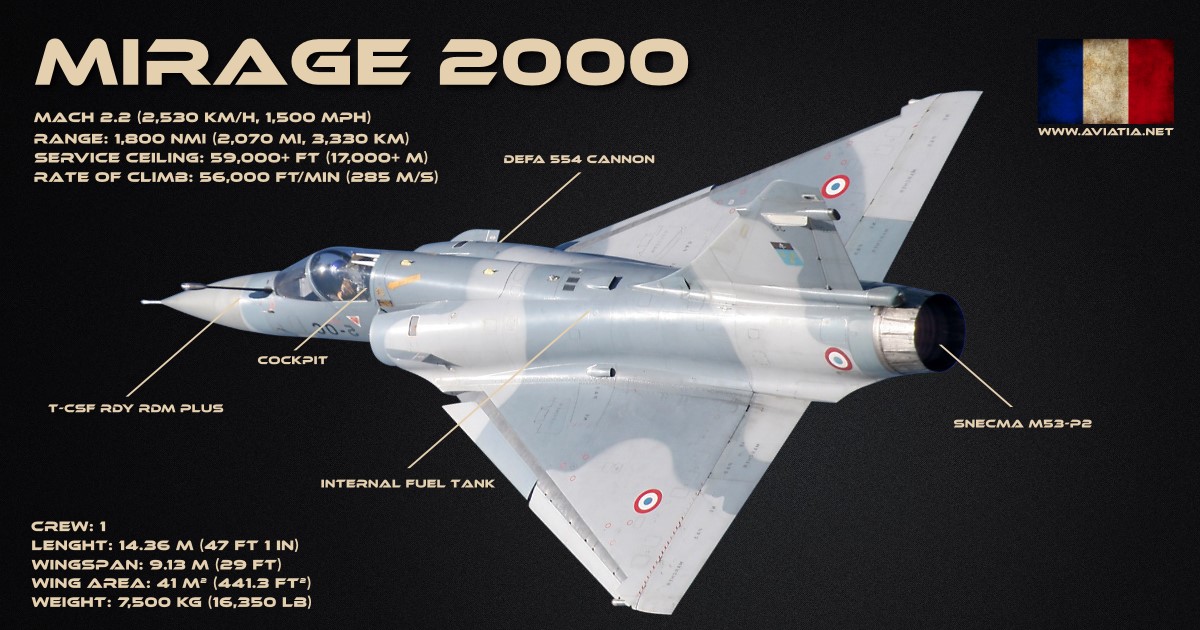
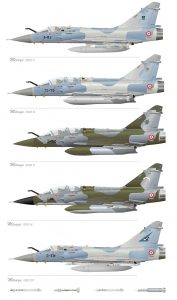
Most Famous Mission:
On 20 October 2011, a flight of French Mirage 2000 D’s were scrambled to hit an unknown armored convoy attempting to pierce through rebel lines outside of Sirte. The Mirage team struck the convoy with two separate passes, destroying 20-30 vehicles and forcing the rest of the unit to scatter. Within moments, rebel troops swarmed over the survivors, capturing and executing the shell-shocked Libyan leader Muammar Gaddafi, and effectively ending the war.
Firepower (2000 D):
There are nine hardpoints in all, capable of carrying any combination of the following:
- 4x Matra SNEB 68-mm 18-round rocket pods on the four underwing hard points4× R550 Magic air-to-air missiles for self-defence, normally 2 on the outboard underwing pylons
- 4× MICA IR air-to-air missiles for self-defence, normally 2 on the outboard underwing pylons
- 1× Apache anti-runway cruise missile on the centerline pylon
- 1× SCALP EG air-launched cruise missile on the centerline pylon
- 2× AS-30L laser-guided missiles on the inboard underwing pylons
- Up to 10x 125kg, 250kg, 1000 Kg bombs, including laser, ISN/GPS, and IIR guided munitions. The lighter versions are carried in pairs on the centerline and inboard wing hardpoints and one under each of the four fuselage hard points.
Avionics:
- Twin inertial navigation system
- Antilope 5 terrain-following radar
See Dassault Mirage 2000 Specifications
| Crew: 2 |
| Length: 14.55 m (47 ft 9 in) |
| Wingspan: 9.13 m (29 ft 11 in) |
| Height: 5.15 m (16 ft 11 in) |
| Wing Area: 41 m² (440 ft²) |
| Empty Weight: 7,600 kg (17,000 lb) |
| Loaded Weight: 10,680 kg (23,550 lb) |
| Max. Takeoff Weight: 17,000 kg (38,000 lb) |
| Powerplant: 1 × SNECMA M53-P2 afterburning turbofan |
| Dry Thrust: 64 kN (14,300 lbf) |
| Thrust With Afterburner: 95.1 kN (21,400 lbf) |
| Maximum Speed: 2,338 km/h (1,289 kn, 1,453 mph) |
| Combat Radius: 800 NM (1,480 km, 920 mi) |
| Ferry Range: 1,800 NM (3,340 km, 2,100 mi) |
| Service Ceiling: 18,000 m (59,000 ft) |
| Rate of Climb: 285 m/s (56,000 ft/min) |
| Wing Loading: 410 kg/m² (85 lb/ft²) |
| Thrust/Weight: 0.91 |
